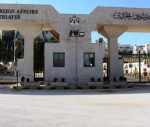You are here
Derek Chauvin and America’s racial reckoning
Mar 15,2021 - Last updated at Mar 15,2021
NEW YORK — The start of the trial of former Minneapolis police officer Derek Chauvin has returned the spotlight to the racial reckoning that accelerated after May 25, 2020, when Chauvin’s knee ended George Floyd’s life. Since then, massive urban protests, the toppling of Confederate statuary and culture wars on university campuses have led many to believe that a semblance of racial justice in America might finally be achieved. But to produce true and lasting change, America’s governing institutions will need to become directly involved.
Recognising this, Representative Barbara Lee of California and Senator Cory Booker of New Jersey have introduced resolutions calling for a “US Commission on Truth, Racial Healing and Transformation”. And Representative Sheila Jackson Lee of Texas and 169 co-sponsors have introduced H.R.40, which calls for the creation of a national commission to examine the legacy of racial injustice in the United States — from slavery to the policing and carceral abuses of the present. More to the point, the commission created under H.R.40 would ultimately address the controversial question of reparations for the descendants of slaves.
Though reparations have become a hot-button culture-war issue, Americans would do well to remember that the US government has already adopted such a policy. Under president George H.W. Bush, and then under president Bill Clinton, around 82,000 Japanese-Americans who had been interned in the US during World War II received reparations checks.
During the 2020 presidential election campaign, then-candidate Joe Biden promised to pursue a “reckoning” not just with words, but through structural changes to right some of the wrongs of racial discrimination. “It will take more than talk,” he said, “Let us vow to make this, at last, an era of action to reverse systemic racism with long overdue and concrete changes.” Now that he is in the White House, Biden’s leadership could be crucial in garnering wider — potentially even bipartisan — support for bills like the one Lee has introduced.
To understand what America’s racial reckoning could look like, we can turn to the experiences of other countries that have formally dealt with historical injustices. Here, one thinks of Argentina’s “Never Again” Truth Commission or the restorative-justice processes pursued in post-apartheid South Africa and Chile after Augusto Pinochet. After the establishment of a nascent democracy, each of these countries took steps to investigate, document and redress the previous regime’s abuses. The idea is that a society can advance into a more inclusive future only by drawing a clear line under the past.
To be effective, a US commission on racial reckoning and structural injustice would have to be non-partisan, bringing in trusted representatives of all social groups, and allow for comprehensive fact-finding in addition to remedial measures. Hearing from victims of segregation and mass incarceration, the families of survivors, and historians of slavery could help to focus public attention and clarify contested narratives, with testimony publicised through televised hearings, social media and other channels.
Beyond procedural issues, the more difficult question concerns the ultimate purpose of such proceedings. In the absence of a widespread consensus about America’s history of racial injustice, one obvious objective is to work toward national unity. But will unity still be possible if the process includes a financial element like reparations? Much may depend on the scope of such compensation; in the case of Japanese-American internees, it was rather narrow.
Equally pertinent is whether the process will include criminal immunity for those who admit culpability for past crimes. In South Africa, disclosures of apartheid-era violence were traded for amnesty. Similarly, in Northern Ireland under the Good Friday Agreement, Catholics and Protestants both agreed to the release of imprisoned partisans. And most recently, cooperation with Colombia’s Truth Commission brought lighter penalties for FARC guerrillas and also for soldiers and members of right-wing paramilitaries.
The point of consulting these examples is not to draw direct comparisons to the US. Each country’s situation is unique, and so must be the process through which it redresses past wrongs. Still, one common element in past reconciliations is the importance of timing. Efforts that would fail at one point can succeed once the underlying cultural and political conditions change. And, once launched, truth and reconciliation processes can justify themselves by educating the public and breaking impasses that have long stood in the way of accountability.
In the US, Biden and Vice President Kamala Harris (herself a former prosecutor) rode to the White House on a massive wave of support that included many new voters. After being elected with a clear mandate, Biden’s approval remains well over 50 per cent — a threshold that Donald Trump never passed. And, like Nelson Mandela, Václav Havel, and Raúl Alfonsín (Argentina’s first democratically elected president after the fall of the military dictatorship), Biden and Harris campaigned on the promise of pursuing accountability and national unity.
But while Biden personally has expressed support for a commission to study the question of reparations, a Reuters/Ipsos poll last summer found that most Americans — including one-third of Democrats — oppose the idea that the US should use “taxpayer money to pay damages to descendants of enslaved people”. It remains to be seen if political leadership and an open process of fact-finding can change people’s minds. But sooner or later, Americans will have to recognise that the only way to move forward is to grapple with what lies behind them.
Ruti Teitel is the Ernst C. Stiefel professor of Comparative Law at New York Law School. Her forthcoming book is “Righting our Global Wrongs: The Role of Presidential Leadership”. Copyright: Project Syndicate, 2021.












